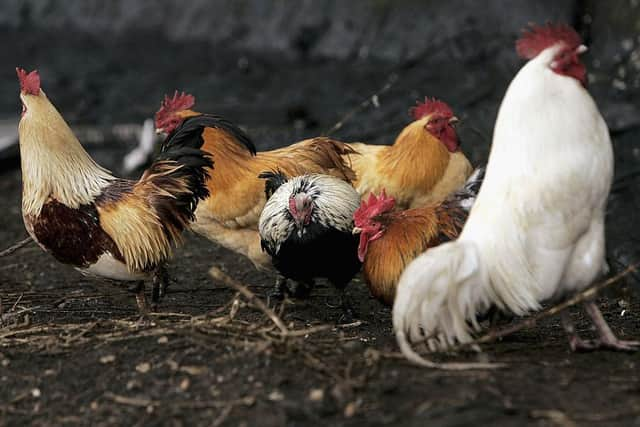Captive birds in Northumberland ordered into lockdown to prevent spread of avian flu
and live on Freeview channel 276
The move is in response to the growing problem of avian flu which has had a particularly devastating effect in Northumberland, hitting the Farne Islands and Coquet Island.
The new law will apply to all captive birds, be they pets, commercial flocks or just a few in a backyard.
Advertisement
Hide AdAdvertisement
Hide AdOwners have also been asked to undertake other strict bio security measures to help limit the spread of the disease and keep flocks safe. This includes regularly cleaning and disinfecting equipment, clothing and vehicles when entering or exiting sites, and limiting access to non-essential workers or visitors.


Anyone who suspects their captive birds of having avian flu must contact DEFRA on 0300 0200301.
And anyone coming across a dead wild bird should also report it via 03459 335577 (select option 7). Carcasses or sick birds must not be touched.
Philip Soderquest, director of housing and public protection at Northumberland County Council. said: “Wild birds migrating to the UK from mainland Europe during the winter months can carry the disease and where wild birds are allowed to mix with domestic birds, or there is a risk of contamination form bird droppings, this can lead to the disease spreading to captive birds.
Advertisement
Hide AdAdvertisement
Hide Ad“Unfortunately, there continues to be avian influenza in wild birds in the northern coastal area of Northumberland, so it is especially important that local bird keepers adhere to these new rules.”
The UK Health Security Agency has confirmed that the risk to public health is very low and the Food Standards Agency has said that bird flu poses a very low food safety risk for UK consumers, and it does not affect the consumption of poultry or eggs.
Bird keepers are also advised to be vigilant for any signs of disease in their birds and any wild birds, report suspected disease immediately and seek prompt advice from their vet if they have any concerns.
Moving sick birds from premises should be avoided to help prevent any possible spread of disease.
At least 3,000 birds have died from avian flu on the Farnes, which is home to around 200,000 seabirds.